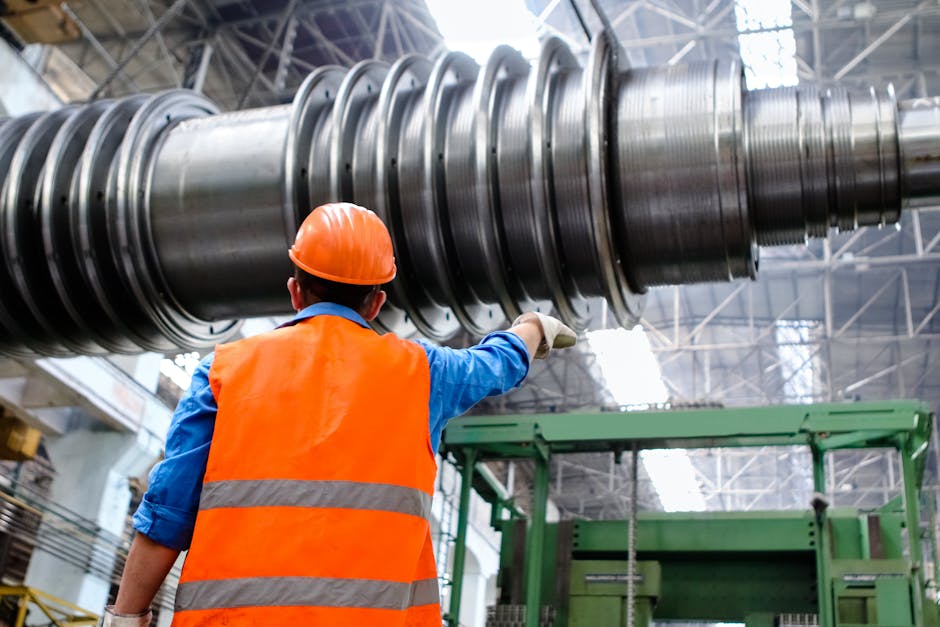The Rising Demand for CNC Milling Services in UK’s Engineering Landscape
In recent years, the engineering landscape in the UK has witnessed a significant surge in the demand for CNC milling services. This escalating need can be attributed to the evolving manufacturing technologies, which have necessitated precision engineering requirements.
The application of CNC milling services has proven to be instrumental in achieving enhanced efficiency and cost-effectiveness in the production process. This trend has brought about a notable impact on the UK’s engineering sector, paving the way for a paradigm shift in the way components are manufactured.
As the industry continues to evolve, it is imperative to anticipate and adapt to the future trends in CNC milling services to meet the escalating demands of the market.
Key Takeaways
- Evolution of manufacturing technologies, such as automation and material innovation, has led to an increased demand for CNC milling services in the UK’s engineering landscape.
- Precision engineering requirements and the need for advanced machinery have influenced the shift towards CNC milling services to effectively meet manufacturing needs.
- Integration of advanced machinery and streamlined workflows in CNC milling services have improved efficiency and cost-effectiveness.
- The adoption of CNC milling technologies has revolutionised the engineering sector, creating a demand for a skilled and adaptable workforce and propelling the industry towards competitiveness and innovation.
Evolution of Manufacturing Technologies

Evolution of manufacturing technologies in the UK’s engineering landscape is driving the increasing demand for CNC milling services.
Automation advancements and material innovation have revolutionised the way products are designed, developed, and manufactured. The integration of automation advancements has significantly enhanced the precision, speed, and efficiency of CNC milling processes. This has not only led to a reduction in production times but has also improved the overall quality of milled components.
Additionally, material innovation has played a pivotal role in expanding the capabilities of CNC milling. The ability to work with a diverse range of materials, including exotic alloys and composites, has broadened the scope of applications for CNC milling services.
Furthermore, advancements in materials have also led to the development of more durable and lightweight components, meeting the ever-evolving needs of various industries such as aerospace, automotive, and medical.
As a result, the evolution of manufacturing technologies, driven by automation advancements and material innovation, has propelled the demand for CNC milling services in the UK’s engineering landscape. This trend is expected to continue as technology continues to advance, further enhancing the capabilities and applications of CNC milling services.
Precision Engineering Requirements

The increasing demand for CNC milling services in the UK’s engineering landscape is being driven by a growing need for precise and accurate component manufacturing. Precision engineering requirements have become paramount in modern manufacturing, compelling businesses to seek advanced machinery and expertise. This demand is influenced by several factors:
-
Tolerances and Accuracy: Industries now require components with incredibly tight tolerances and high accuracy to meet the exacting standards of modern applications.
-
Complex Geometries: The need for intricate and complex part geometries has surged, necessitating advanced CNC milling capabilities to achieve these designs accurately.
These precision engineering requirements have led to a significant shift towards the use of advanced machinery that can deliver the level of precision and accuracy demanded by diverse industries. As the need for such precision continues to rise, businesses are increasingly turning to CNC milling services to meet their manufacturing needs effectively.
This growing reliance on precision engineering and advanced machinery directly impacts the efficiency and cost-effectiveness of manufacturing processes.
Efficiency and Cost-Effectiveness

Driven by the imperative for precise and accurate component manufacturing, the increasing demand for CNC milling services in the UK’s engineering landscape has led to a parallel emphasis on efficiency and cost-effectiveness in manufacturing processes.
This shift towards efficiency and cost-effectiveness is primarily driven by the need for improved productivity, which can be achieved through the integration of advanced machinery and streamlined production workflows. CNC milling services are increasingly adopting cutting-edge technologies such as multi-axis machining, high-speed cutting, and automated tool changing systems to enhance efficiency.
These advancements not only enable faster production cycles but also reduce material wastage, leading to significant cost savings for engineering firms. Moreover, the use of advanced machinery allows for the production of complex components with minimal human intervention, further optimising the manufacturing process.
As a result, CNC milling services are becoming more cost-effective while maintaining high precision and quality standards, meeting the growing demands of the engineering industry in the UK.
This emphasis on efficiency and cost-effectiveness has a profound impact on the UK’s engineering sector, influencing various aspects such as production timelines, resource allocation, and overall competitiveness in the global market.
Impact on UK’s Engineering Sector

With the growing emphasis on efficiency and cost-effectiveness in CNC milling services, the impact on the UK’s engineering sector is significant and far-reaching.
-
Technological AdvancementsThe adoption of CNC milling technologies has revolutionised the engineering landscape in the UK, leading to increased precision, higher production rates, and enhanced product quality.These advancements have not only streamlined manufacturing processes but have also opened up new possibilities for complex and intricate designs, allowing engineers to push the boundaries of innovation.
-
Skilled WorkforceThe demand for CNC milling services has created a need for a highly skilled and adaptable workforce.Engineers are now required to possess a deep understanding of computer-aided design (CAD) and computer-aided manufacturing (CAM) software, as well as proficiency in operating and maintaining CNC milling machines.
The integration of advanced technologies and the demand for a proficient workforce have reshaped the dynamics of the UK’s engineering sector, propelling it towards greater competitiveness and innovation. This transformation not only highlights the current impact of CNC milling services but also sets the stage for future trends in CNC milling services.
Future Trends in CNC Milling Services

How will the evolving technological landscape impact the future trends in CNC milling services within the UK’s engineering sector? The future of CNC milling services in the UK’s engineering landscape is poised to be shaped by significant technological advancements and a growing emphasis on sustainability practises. Automation is expected to play a pivotal role in the evolution of CNC milling services, with an increasing focus on enhancing operational efficiency and productivity. This will involve the integration of advanced robotics and AI-driven systems to streamline manufacturing processes and minimise manual intervention. Additionally, sustainability practises are set to become a key driving force in the future of CNC milling services, as the industry strives to reduce its environmental footprint. This will encompass the adoption of eco-friendly materials, energy-efficient manufacturing techniques, and waste reduction strategies. By embracing these future trends, CNC milling services in the UK will be better positioned to meet the evolving demands of the engineering sector while contributing to a more sustainable and environmentally conscious manufacturing landscape.
| Future Trends in CNC Milling Services | Impact |
|---|---|
| Automation Advancements | High |
| Sustainability Practises | High |
Frequently Asked Questions
What Are the Key Challenges Faced by CNC Milling Services Providers in the Uk?
Challenges faced by CNC milling services providers in the UK include the need for continuous innovation to meet evolving customer demands, the requirement for advanced technology and skilled labour, and the pressure to maintain cost-effectiveness while ensuring high-quality outputs.
How Are CNC Milling Services Contributing to Sustainability and Environmental Considerations in the UK Engineering Sector?
CNC milling services in the UK’s engineering sector contribute to sustainability through advanced technology, reducing environmental impact, and enhancing cost efficiency. By adopting sustainable practises and leveraging technology advancements, these services play a vital role in promoting environmental responsibility.
What Are the Emerging Materials and Alloys That Are Being Used in CNC Milling Services in the Uk?
In the UK’s engineering landscape, CNC milling services are utilising cutting-edge technology to work with new materials and innovative alloys. This advancement is driving the evolution of CNC milling services and enhancing their capabilities.
How Are CNC Milling Services Providers Addressing Cybersecurity and Data Protection Concerns?
CNC milling services providers are increasingly prioritising cybersecurity measures and data protection compliance to address concerns. Implementing robust security protocols and adhering to regulatory standards are critical in safeguarding sensitive information and ensuring client trust.
What Are the Potential Implications of Brexit on the CNC Milling Services Industry in the Uk?
The potential implications of Brexit on the CNC milling services industry in the UK are significant. Market trends suggest potential disruptions in supply chains, regulatory changes, and shifts in trade agreements, impacting the industry’s competitiveness and operational landscape.
Conclusion
In conclusion, the increasing demand for CNC milling services in the UK’s engineering landscape reflects the evolving manufacturing technologies and the growing need for precision engineering and cost-effective solutions. This trend is significantly impacting the engineering sector in the UK and is expected to continue shaping the future of CNC milling services.
How will this continued growth in demand for CNC milling services influence the broader landscape of engineering and manufacturing in the UK?
Contact us to discuss our services now!
